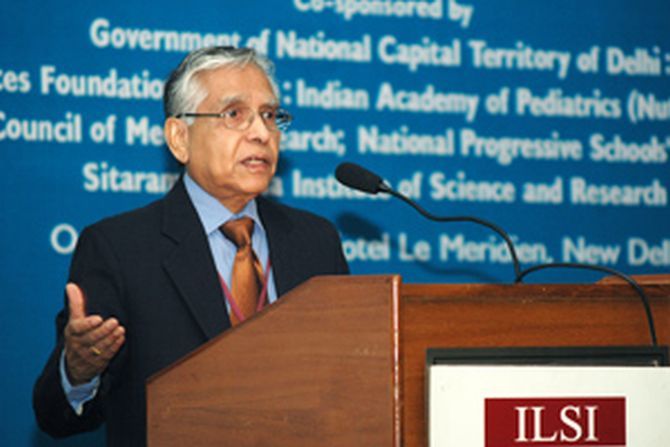He did not believe in any fiscal puritanism. In 2012, when it was almost certain that the government will breach the 2012-13 fiscal deficit target, he wrote that in abnormal times, abnormal measures are required to get back to normalcy.

Eminent economist D H Pai Panandiker passed away in the national capital on Monday following prolonged illness.
He was 86 and is survived by a son and a daughter.
Panandiker suffered a heart attack in July this year and had been unwell since then, his daughter Surekha Panandiker told Business Standard.
He served as the secretary general of the Federation of Indian Chambers of Commerce and Industry (Ficci) for a decade from 1981, and voiced the interests of India Inc during the licence permit raj.
Those close to him said he was offered a plum post in Hindustan Times after he left Ficci in 1991, but he opted to be a consultant at RPG Foundation.
Panadiker also served as the chairman of the South Asia chapter of the Washington-based International Life Sciences Institute (ILSI).
He closely watched the country’s macro economy. Even former Finance Minister Manmohan Singh used to take his advice, those close to him said.
Lauding the Fiscal Responsibility and Budget Management (FRBM) Act, he wrote in 2004 that finance ministers henceforth will be bound to the targets laid down, which will help bring back some balance in the Budgets.
However, he did not believe in any fiscal puritanism. In 2012, when it was almost certain that the government will breach the 2012-13 fiscal deficit target, he wrote that in abnormal times, abnormal measures are required to get back to normalcy.
He said a high fiscal deficit will not revive inflation but generate additional demand necessary to pull up the economy.
Nonetheless, he had cautioned the United Progressive Alliance government to use the additional money raised from the market for capital expenditure and not revenue.
After demonetisation impacts started getting visible in subsequent quarters, Panandiker had said Prime Minister Narendra Modi is partly responsible for the dip in growth, but there is little he can do to revive it.
“Some problems will drag on - unemployment is not going to resolve soon and we need correction of exchange rate and reduction in interest rates.
The ball is in central bank’s court now,” he was quoted as saying by Bloomberg in October 2017 after the RBI kept the repo rate unchanged.
He had criticised the RBI over its monetary stance on the consideration that the interest rate has to be above the rate of inflation and there should a minimum margin between the repo rate and the rate of inflation.
Photograph: Kind courtesy, ILSI












 © 2025
© 2025